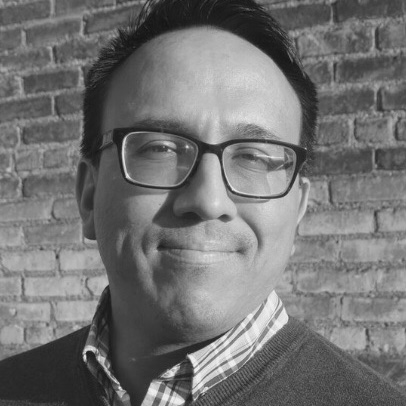Story by Sara Carbone, CollectiveSun Content Marketing Manager
During these times of significant changes and challenges, US nonprofits have needed to significantly adjust their methods in order to continue to serve their communities. How Nonprofits are Pivoting During COVID is CollectiveSun’s series that focuses on how nonprofits are adjusting to these changes, in an effort to offer support to our nonprofit partners.
Our first four articles in the series featured interviews with employees from Twin Cities Public Television, Wilder Foundation, Catholic Charities Archdiocese of New Orleans and the California Solar and Storage Association. For this fifth interview we talked to Cole St. Arnold, Capacity Building Coordinator at the NDN Collective, an organization dedicated to building Indigenous power by creating sustainable solutions on Indigenous terms. Cole discussed how NDN has capitalized on their largely remote operations in order to stay connected to their communities and offers some advice to other nonprofits on how to make things a little easier.
What have nonprofits done to stay connected with the communities they serve given the impact of social distancing and limitations around things like large groups meeting?
Considering that everyone is on some sort of screen at the moment, it’s easier to find a way to reach out to people through social media and video conferencing. At the Collective and NDN Fund, we utilize social media to connect with folks and offer webinars to get across messaging we have in get out the vote efforts and our recently launched LandBack campaign. We understand that it’s difficult to connect but we try to meet folks where they are.
Has COVID meant an alteration in the focus of their operations or the mode of service delivery?
At the NDN Collective/NDN Fund the work before COVID was largely remote due to the staff working all throughout the so-called United States. This lends well to the work right now as it allows us to quickly respond to opportunities to help the community. At the NDN Fund, we are focusing on how to best support communities through lending that meets the needs of businesses being affected by COVID. Demand for capital in these businesses and communities has gone up but we are able to respond quickly to the need.
How have you adjusted your internal operations to accommodate new operational requirements or a decrease in revenue?
At the NDN Collective/NDN Fund, as I mentioned, we are a remote staff and we were before Shelter in Place orders were issued during the beginning of the pandemic. That being said, we would still try to meet up in person a couple of times a year for in-person strategic planning. Since that’s on hold for the time being, we still try to ensure that this strategic planning happens, albeit digitally now. I think going forward, it’s helpful for nonprofits to consider the ideas around normative and operative thinking, or to put it another way, what we want the situation to be and what it actually is in reality. The work from home situation we’re in right now is unparalleled, and we should fully embrace what that means for the changing workplace environment.
Any favorite anecdotes about nonprofits who have really stepped outside the box around their thinking during this time?
A favorite nonprofit of mine in the Minneapolis-Saint Paul metropolitan area, Project Success, has been able to retain all its staff during the pandemic. If that isn’t out of the box thinking during a once in a lifetime situation, I really don’t know what is!
Do you have particular advice for nonprofits as they work to make the needed changes during these times?
Not to put any particular organization on blast, but if you already had an existing work from home situation in place before the pandemic, things were going to be easier for you. I would just say trust your staff and understand that folks working from home do not need to be constantly policed about whether they’re putting out the same amount of work they did before the pandemic started. Staff are not going to have the same work output considering that other needs (e.g. family, friends, staying healthy) are going to take priority.
About Cole
Cole St. Arnold, NDN Fund Capacity Building Coordinator, is a citizen of the Jicarilla Apache Nation and a relation of the Keweenaw Bay Band of Lake Superior Chippewa. His work in the nonprofit and public sectors has taken him from Colorado, to Arizona, to Mni Sota, all while working toward sustainable community development for Tribal Nations.
Cole holds a BA from the University of Colorado at Boulder and an MPA from the Watts College of Public Service and Community Solutions at Arizona State University.
